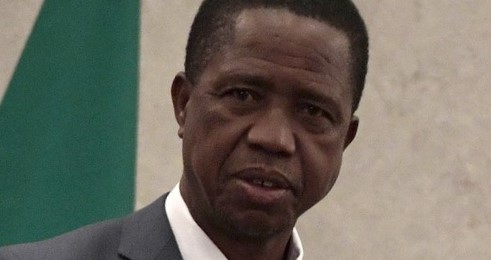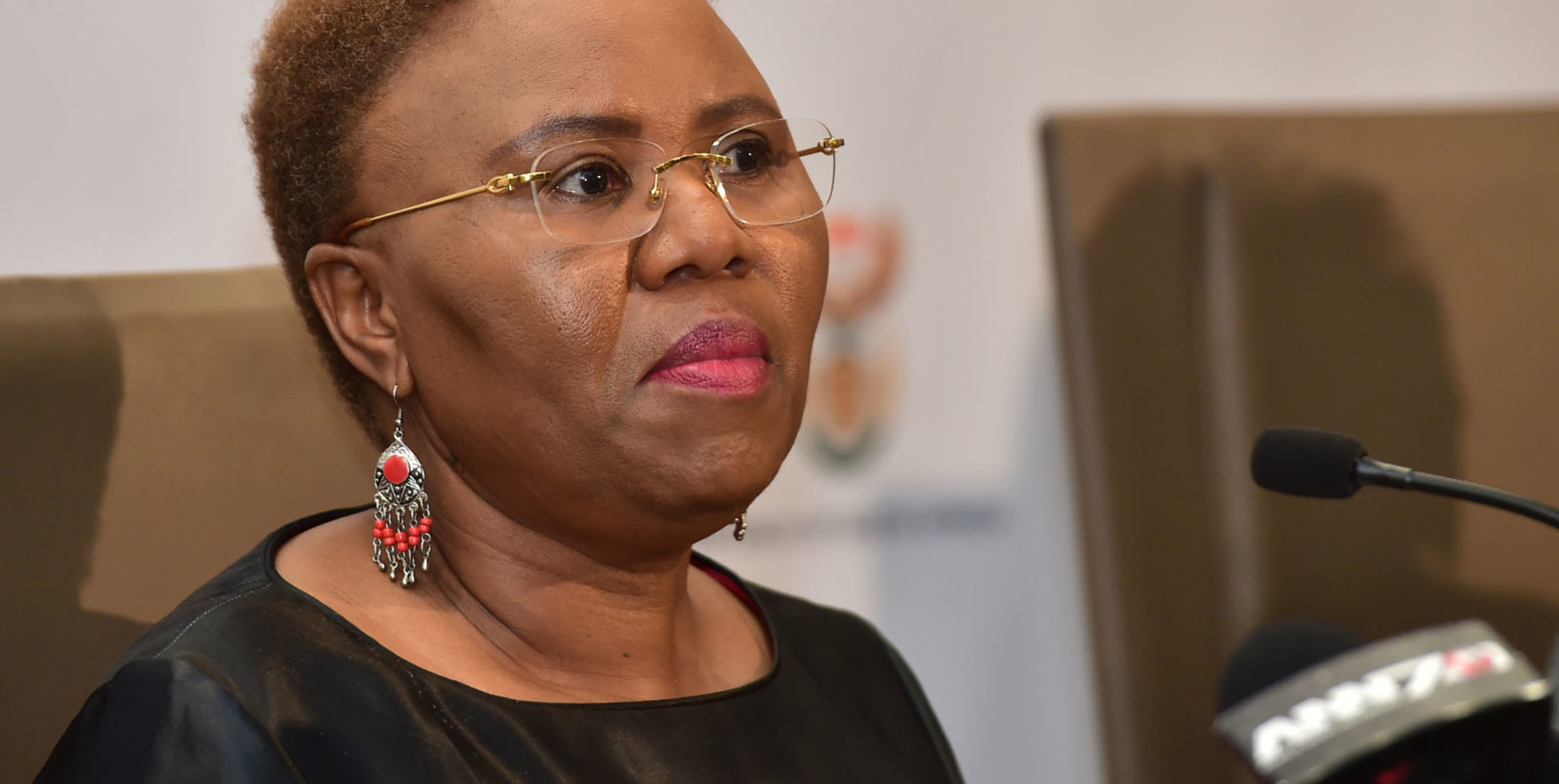News
Zambia's Zimbabwe Redux
Runaway inflation, declining investor confidence, a reduction in export earnings, recession, shortages, social unrest … Zambia's problems are piling up

The diplomatic bruhaha over SA Finance Minister's Tito Mboweni's comments about Zambian President Edgar Chagwa Lungu's firing of his Reserve Bank Governor Denny Kalyalya, obscures a bigger issue.
For the record, Mboweni took to Twitter to say: 'Presidents in Africa must stop this nonsense of waking up in the morning and fire a Central Bank Governor! You cannot do that. This is not some fiefdoms of yours! Your personal property?! No!'
He was since reprimanded for going too far by South Africa's President Cyril Ramaphosa.
The bigger issue is that you can't change the rules of arithmetic.
Despite the example of neighbouring Zimbabwe's economic collapse over the last 25 years, Lungu was apparently intent on his country relearning this maths lesson. And it will inevitably do so, at great economic and social cost, the responsibility for which Lungu's government will habitually try to wriggle.
Lungu needs a Central Bank Governor who will not hesitate to print money.
Kalyalya, who holds a PhD from the University of Massachusetts (Amherst) in the US, had warned of the 'serious stress' that Zambia's economy was under even before Covid-19 struck. 'Last year we had a growth of 1.9% … that's quite low' he warned. Zambia was now experiencing 'a recession … accompanied by inflation … a bad mix because the prices are rising which means that whatever little income you have is not going to go around.'
This month Dr Kalyalya projected a 4.2% contraction in GDP, down on the earlier forecast of -2.6%. He warned there was as a result a need to adjust macroeconomic fundamentals and debt sustainability to ensure economic stability. Credit to the private sector had nearly halved to 10.4% of GDP due to fears of high default rates.
This would be the first Zambian recession in over 20 years. But it has been some time in the making.
By the late 1980s, declining copper growth and the redistributive policies of Kenneth Kaunda's one-party rule had resulted in declining national income and cyclical crises. With Kaunda's bundling out of office on the return to multiparty politics in 1991, Zambia began a long path to recovery. Under this new regime, the privatisation of state companies saw copper outputs increase threefold to pre-nationalisation levels as fresh investment flowed in.
Then arrived the Patriotic Front government of Michael Sata in 2011, succeeded on his death in 2014 by Lungu. The PF went on a foreign debt fuelled spending spree, the tally of which increased from under $500 million in 2005 to $11.7 billion today.
Add in domestic debt and the figure is over $20 billion.
Even before Covid, the PF was running out of other people's money to spend. Yet the PF needs to continue to do so, not least given the upcoming 2021 national election. To feed this habit, it needs to get rid of any obstacle to spending and printing more money.
As the dismissed Governor intimates, now it is stuck in a bind between low growth, demand compression and declining copper production, the latter a reflection of governance and policy concerns. The upset caused by the abrogation of long-standing development agreements with the mines has been compounded by the subsequent failure to pay back VAT claims, the government's squeezing of investors including Vedanta's Konkola Copper Mine and Glencore's Mopani, serial changes in tax and royalty regimes, and the understandable reluctance of the big companies to reinvest.
Throw in a power deficit of 940MW against a peak demand of 2,300MW with 8-10 hours of load-shedding along with the threat of sovereign debt default, and Zambia is in a situation of radical uncertainty.
To get out of it, Zambia has to restructure its debt, especially from China, which has seldom proven so generous. It needs an IMF deal, but the Fund has so far been unwilling to bail out a country which will not reign in spending and where governance is routinely trumped by politics. In reaction to Dr Kalyalya's firing, the IMF said 'It is imperative that central banks' operational independence and credibility is maintained, particularly at this critical time when economic stability is threatened by the Covid-19 pandemic. Without credible institutions and sound policies, sustained economic growth and much needed improvements in living standards will not be possible.'
Now, with Lungu's confidant Christopher Mvunga appointed to the Governorship, will things change? Mvunga, a Chartered Accountant by profession, was the deputy secretary to the Cabinet before this promotion.
Opposition leader Haikande Hichilema says of Mvunga 'he does not have the depth of training, qualifications and experience in economics required to run the Zambia Central Bank. His integrity, credibility and personal character, is also questionable.' He added: 'With the IMF leaving us to sort out our own mess, the next likely group will be the creditors who will start demanding their pound of flesh. Then the kwacha will be in free fall.'
He argues that the reasons for Dr Kalyalya's dismissal centre on his refusal to print money for a PF spending spree prior to the 2021 national election, in which HH (as Hichilema is known) will again compete.

Others are still more forthright.
'He projects himself up as this big-time banker,' said one corporate figure of the new Governor, 'but he's got no more financial acumen than the teller at my local branch.' Mvunga worked as a Product Specialist at a bank in Zambia around the same time that Dr Kalyalya acted as an Executive Director at the World Bank.
Former Finance Minister (and Deputy Central Bank Governor) Situ Musokotwane sees that South Africa has every right to make comment on the Governor's removal. 'Sovereignty is never absolute. One way or the other we are all linked together. SA is suffering from economic migrants caused by regional governments messing up, and it is within its rights thus to comment when another risks doing the same.
'There is a high possibility of a runaway currency now' he said. 'This will translate into inflation and lengthening queues for scarce goods and services. Mvunga,' he warns, 'will likely quickly deplete forex reserves to please Lungu in defending a falling exchange rate whose cause remains unaddressed by the same government. Yet solving this kind of problem,' he says, 'requires fresh minds and a fresh approach.'
The former minister questions why you would get rid of a man with years of experience in dealing with these issues, including debt relief, and replace him with one so obviously ill-equipped.
The causes of the economic situation not only remain unaddressed, but rather exacerbated by these developments: a lack of confidence engendered by poor choices of the sort that led to a change of Governorship.
The dangers of declining governance are moot. Runaway inflation, declining investor confidence, a reduction in export earnings, recession, shortages, social unrest … all of which can only ultimately be remedied by political change.
The absence of such change explains why Zimbabwe remains in crisis, and its prospect why there is still hope for Zambia.
Dr Mills heads the Brenthurst Foundation and is the co-author, most recently, of The Asian Aspiration: Why and How Africa Should Emulate Asia.


